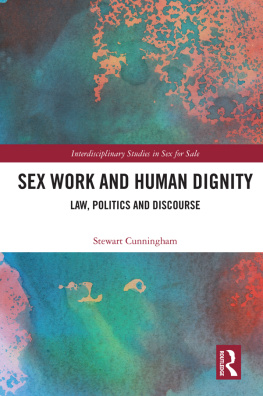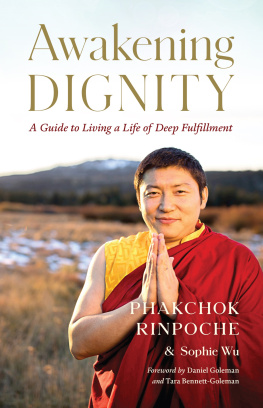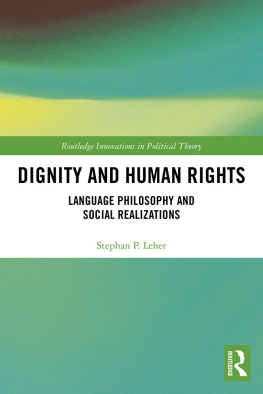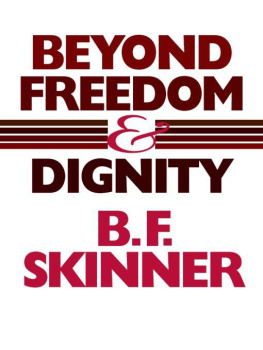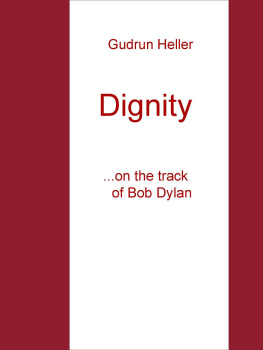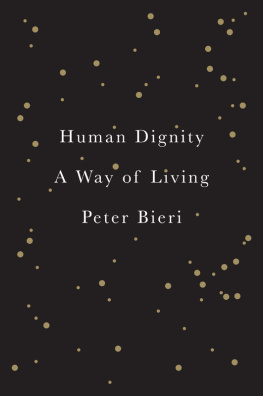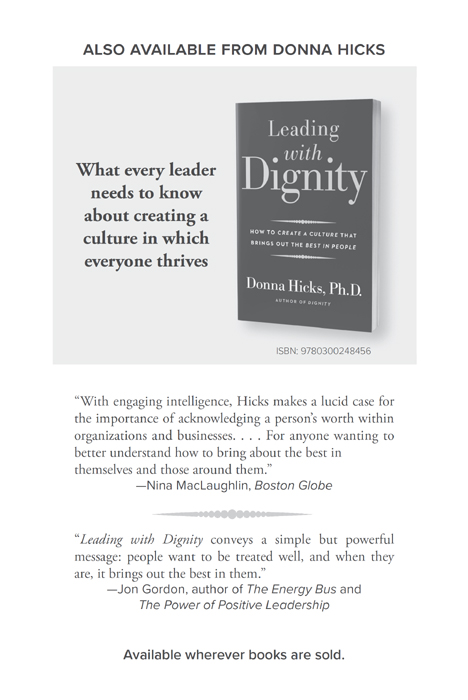
Dignity
DIGNITY
ITS ESSENTIAL ROLE IN RESOLVING CONFLICT
TENTH ANNIVERSARY EDITION WITH A NEW PREFACE

DONNA HICKS, Ph.D.
FOREWORD BY ARCHBISHOP EMERITUS DESMOND TUTU

Published with assistance from the Mary Cady Tew Memorial Fund.
Preface for the Tenth Anniversary Edition copyright 2021 by Donna Hicks.
Copyright 2011 by Donna Hicks. All rights reserved.
This book may not be reproduced, in whole or in part, including illustrations, in any form (beyond that copying permitted by Sections 107 and 108 of the U.S. Copyright Law and except by reviewers for the public press), without written permission from the publishers.
Yale University Press books may be purchased in quantity for educational, business, or promotional use. For information, please e-mail (U.K. office).
Designed by Nancy Ovedovitz.
Set in Adobe Garamond and HFJ Gotham type by Duke & Company, Devon, Pennsylvania, and by Integrated Publishing Solutions, Grand Rapids, Michigan.
The Library of Congress has cataloged the hardcover edition as follows:
Hicks, Donna.
Dignity : the essential role it plays in resolving conflict / Donna Hicks ; foreword by Archbishop Emeritus Desmond Tutu.
p. cm.
Includes bibliographical references and index.
ISBN 978-0-300-16392-6 (alk. paper)
1. Human rights. 2. Dignity. 3. Social rights. 4. Social conflict. 5. Reconciliation. I. Tutu, Desmond. II. Title.
JC591.H53 2011
305dc22
2011010975
ISBN 978-0-300-26142-4 (tenth anniversary paperback)
A catalogue record for this book is available from the British Library.
What does dignity feel like?
Contents
by Archbishop Emeritus Desmond Tutu
ONE
THE TEN ESSENTIAL ELEMENTS OF DIGNITY
TWO
THE TEN TEMPTATIONS TO VIOLATE DIGNITY
THREE
HOW TO HEAL RELATIONSHIPS WITH DIGNITY
Foreword
I have come to appreciate Donna Hickss excellent work in the field of human dignity and to value her friendship. I encouraged her to share her insights with a wider audience. This she has now done, and I congratulate her for bringing so clearly to the fore in this compelling book the concept of dignity, that inalienable God-given right of all humankind. This book is timely. We seem somehow to have forgotten that all beings are equal in dignity, the tenet in the first article of the Universal Declaration of Human Rights. The prophet in Donna Hicks brings us back to that call. She has the gift, perhaps it is her vocation, of opening to our sight a world where those most basic of human needsappreciation, recognition, and the feeling of inherent worthmay be attained by all.
Donna Hicks tells of the time when we were together in Northern Ireland, facilitating meetings between victims and perpetrators of violence in the recent unhappy conflict in that land. Day after day, we heard the retold stories of violence and anger and the aching loss of loved ones. It was almost always the loss of dignity that drove the perpetrators to the awful acts they had committed. It was dignity regained that enabled them to face their victims. And it was dignitythe perception of worth in the otherthat made reconciliation possible. I could not but reflect there on my and others experience of apartheid in South Africa. In those dark days it was in the consciousness of our own worth and the knowledge that right must prevail and evil be overcome that our dignity sustained us. It was our sense of dignity that brought us to democracy in peaceful transition.
Dignity not only sustains but also energizes and enables. It accomplishes great things. It lifts the fallen and restores the broken. When the recognition of the good in the other is shared, it is the sense of personal dignity given that can bring peace to situations of potential conflict. Peoples awareness of their own dignity, their sense of worth, is the only answer to the inertia of an everyday life ruled by feelings of uselessness. How wonderful it would be if we all, every one of us, became agents of dignity, purveyors of the truth that this God-given dignity is the birthright of all.
This book is no quick and easy guide to dignity. Suggestions and challenges abound, and the guidelines that will enable us to foster good relationships are clear. But far more significant than any advice given is the driving awareness that permeates this bookthat in the concept of human dignity we have in our hands, as it were, the key to the conundrum of the ages: How can peace on earth be found? Donna Hicks threads the answer clearly through her tale. God gave each of us inherent worth and value; accept it in yourself, discover and encourage it in others, and peace may just be possible.
We all long that this may become a reality in our aching world.
Archbishop Emeritus Desmond Tutu
Preface for the Tenth Anniversary Edition
When Dignity was first published ten years ago, my initial reaction was relief. Id felt that my understanding of conflict had a missing link, and it had taken nearly a decade to figure out how to write about it. Finally I had accomplished what I had set out to do: give people the language to understand that violations to our sense of value and worth inevitably give rise to conflict. It is a human desire to be treated with dignity. I knew violations of our sense of dignity were a universal source of human suffering; I could see examples everywhere. I also knew that violations were a source of suffering that we could do something about.
What I certainly didnt expect was how overwhelming the response to the book would be. I thought my audience would be mostly my international conflict-resolution community. When I was invited to consult in the corporate world, healthcare institutions, schools, faith communities, and a variety of other organizations, I was astounded by the interest. Little did I know I had provided an answer to a problem that is experienced everywhere human beings gather. The potential for relationships to break down because of unaddressed and unresolved dignity violations is ever present.
What I have learned over the past ten years is that the ignorance surrounding dignity and the role it plays in our lives and relationships is enormous. Even though people experience dignity violations on a daily basis, what to call them, and how to address and heal from them, is another matter. Nowhere in our educational experience are we exposed to matters of dignity, which is why ignorance about this human issue is so pervasive.
Over the years, readers have written to me that the Dignity Model helped them understand the problems they were having in their relationships and especially in their workplaces. They tell me that the most important contribution I provided was vocabulary. Using the Ten Elements of Dignity as a guide, they were able to identify and validate what went wrong in their hurtful interactions and find a way to talk about it.
My experience in the corporate world convinced me that the problems in the workplace were directly related to the behaviors of those in leadership positions. Most of the leaders with whom I worked were fine people, but they knew precious little about dignity. Their inability to understand the impact of dignity violations on other people, given how unintentional the violations often were, created a toxic work environment where the violations were never addressed. After I explained what a dignity violation is and what to call it, an employee I interviewed said to me, Dignity violations? Sucking them up is part of my job description.
Next page

